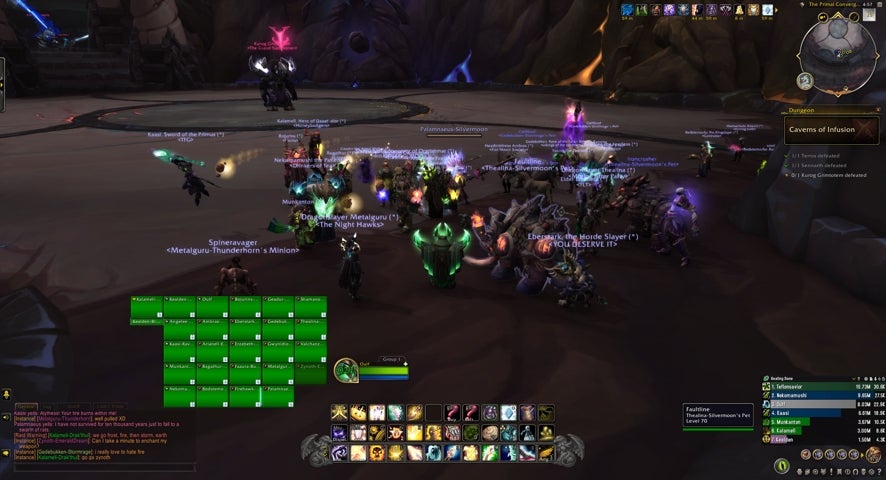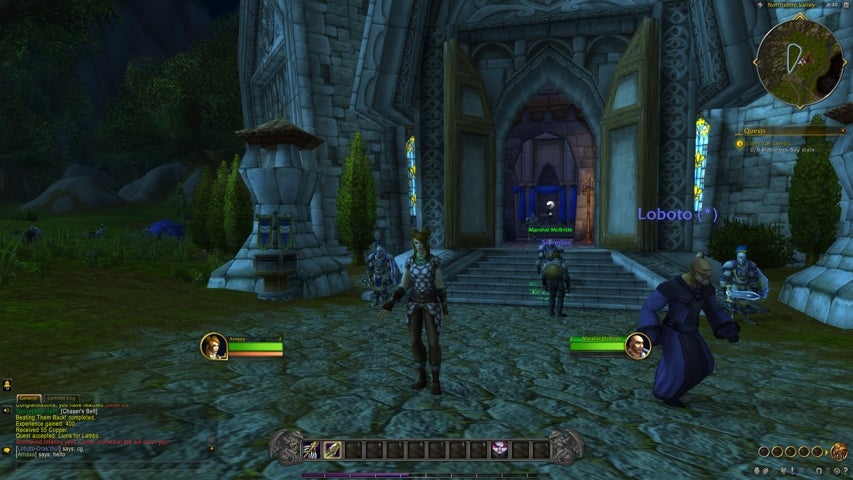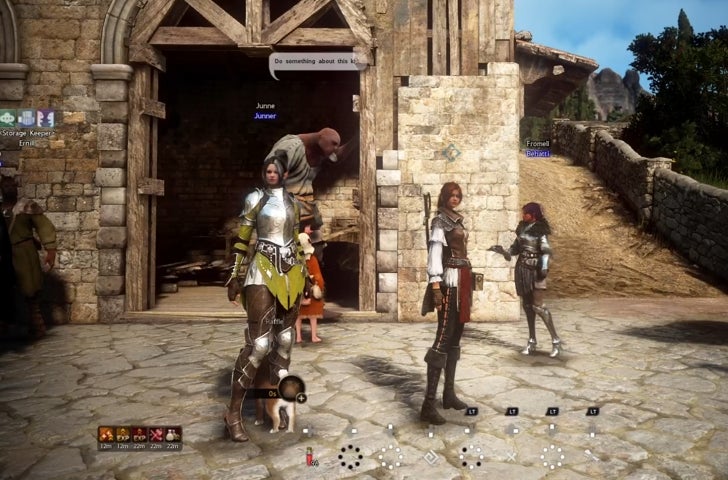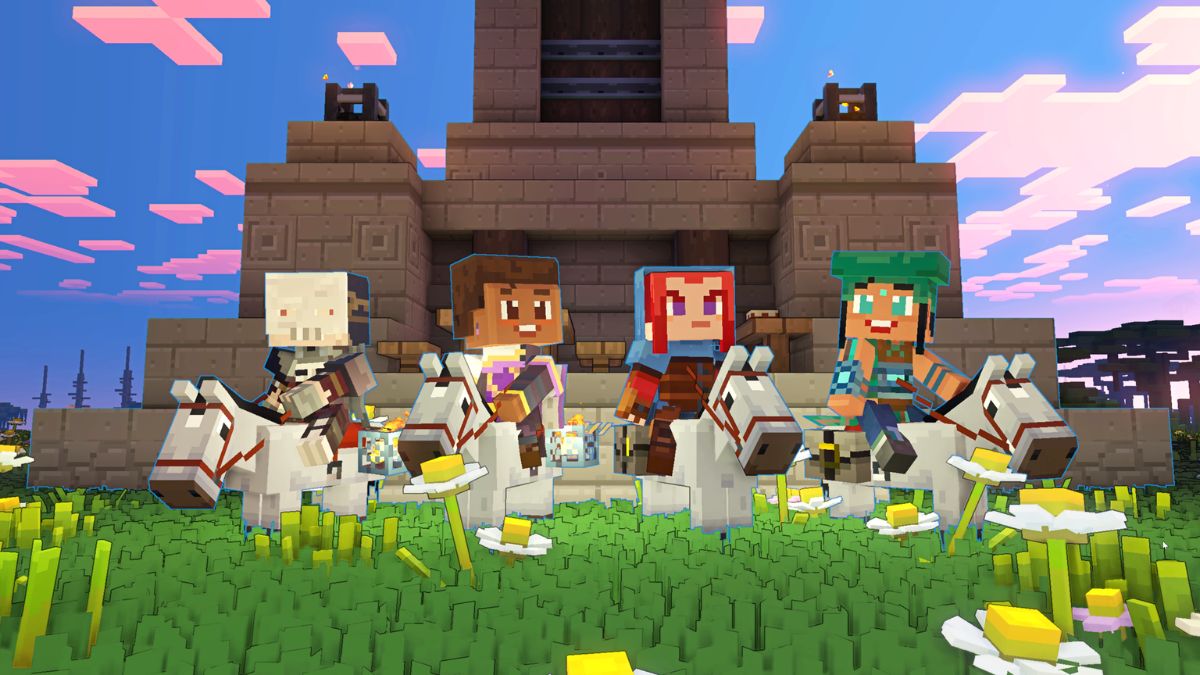![]() Key Takeaway
Key Takeaway
Video games provide players with opportunities to maintain existing social connections and most importantly, make entirely new friendships. Making use of games’ social tools can help foster a sense of community and reduce feelings of social isolation.
Video games play an important role in furthering our social connections. They’ve become a medium for forming and maintaining relationships that transcend a range of real-world borders. As such, their role in popular culture is arguably more important than ever before.
Table Of Contents
Video Games Promote Social Connectivity
Although gaming can seem like an inherently solo activity, this is often far from the case. Video games, especially those that are played online, can give our sense of social connection a real boost. Even if we’re not aware of it.
It’s no coincidence that during the COVID-19 pandemic, engagement with video games and gaming as a social activity saw a marked global increase. During the first year of lockdowns in particular, more people across the world than ever discovered gaming as a way to stay connected with one another.
As the world was forced into a digital-first model of operating, video games provided people with the more entertaining side of social connectivity that was desperately needed outside of remote working and homeschooling.
That sense of connection remains important even as the world transitions out of the era of social distancing and back into a new normal. Just as many of the benefits of a remote-first work life are being retained, so too are the connections made through online play. It’s clear that the digital age is here to stay. Thankfully, gaming continues to offer numerous ways for people to socialize, collaborate, and form bonds that transcend geographical, circumstantial, or personal barriers.
Games Act as a Platform for Social Interaction
It’s true that games can be a great way to immerse yourself in another world, switch off and relax. However, when it comes to social interaction, it’s fair to say that gaming brings its own set of unique benefits.
In fact, many video games are designed to be collaborative by nature, with online multiplayer being a core mechanic. Titles such as Fortnite, Minecraft, and World of Warcraft, for example, put a strong focus on their games as being a platform for social interaction.

In an MMORPG such as World of Warcraft, players can form and join their own guilds in order to tackle particularly challenging dungeons, raids, and world bosses together. A sense of community and belonging is derived wholly from the shared experience of the game itself. In turn, this fosters friendships and a sense of teamwork.
It’s not all about completing objectives though. Many players who join guilds or form groups together in online games experience a sense of deep connection just by chatting whilst in the game world. Players often choose to help one another out by sourcing and crafting materials to share with one another, or simply exploring the world whilst discussing the ins and outs of their daily lives.
By providing a platform for social interaction, video games are a way for people to share positive experiences through play. They also allow players to remain in contact with one another through messaging and in-game mail, even if they can’t physically be together in the real world.
Gaming: A Tool for Making New Connections
Interestingly, video games also provide opportunities for players to form new connections and build relationships with others they may not encounter in real life. In a world where the demands of work leave little room for external socialization through hobbies, many people are making new friends through their encounters in games.
What’s more, these friendships are being built in stress-free ways. The majority of online games have both voice and text chat options. Such communication choices allow players to socialize in the way they feel most comfortable, which over time builds confidence in their social skills in various in-game situations.

Additionally, these tools make social interactions with new people seem less intimidating when in games. The pressure of giving someone an immediate answer is removed, especially when communicating via text chat. This enables people to communicate in a way they feel more comfortable and confident, meaning social engagement is both more likely and more satisfying.
Crucially, video games allow people to socialize while in a safe space. This is particularly important for those who have social anxieties or may just be more naturally introverted. It’s also a key factor for younger gamers and for the elderly, who may need the time and space to interact with others at their own pace and comfort level.
Combating Social Isolation
While the pandemic caused many of us to forcibly disconnect from one another, social isolation and loneliness remain persistent issues for many people. For players who may be dealing with barriers to real-world socialization, the communicative tools put in place by online games are vital.

Some gamers may be dealing with loneliness and social isolation as a result of a tough work-life balance that leaves them little time for external hobbies. Or they may live in a remote location where opportunities for social activities are limited. Or it may be that there are other factors in their lives such as personal, health, or wellbeing-based difficulties that leave them more socially isolated than they would like.
Whatever the reasons, social isolation is a pervasive issue for many people, but it’s something that online gaming, and the communities that emerge as a result of these connections, can have a real positive impact on.
Accessibility and Marginalized Demographics
Gaming is perhaps at its most impactful for those in marginalized demographics and people with disabilities. These players in particular can often face wide-ranging barriers to the development and use of social skills. This may be down to a lack of real-world opportunities to interact with other people, and physical or mental health-related barriers to communication, for example.
There are numerous other factors to consider, but people with disabilities and those from marginalized communities may find that options for establishing and building social relationships are more accessible through gaming.

Video games can assist in removing some of these obstacles by creating pressure-free opportunities for social interaction. In addition, they provide chances for players from these groups to take part in team-based activities and form new friendships.
Players from marginalized demographics may also find increased opportunities for building connections through video games. Those who may experience barriers to social experiences as a result of their identity, gender, ethnicity, or sexual orientation may find that socializing in video games allows for freer self-expression without fear of judgment or real-world consequences.
Building a Sense of Belonging
Video games have been the birthplace of a number of online communities over the years. These communities often emerge out of a shared love of a particular game. In addition, many friendships and relationships that originated as part of a multiplayer gaming session develop further through these wider communities.
Spaces such as Discord and Reddit are great examples of this. They enable players to further connect and develop their social and communication skills through their enjoyment of games. These communities help to strengthen a sense of belonging that emerges through collaborative gameplay.

This is particularly evident in multiplayer titles such as Final Fantasy XIV or esports games such as League of Legends or Overwatch 2. These communities have a wider social impact than just their online spaces. For many of their otherwise socially-isolated members, they establish a sense of identity, voice, and purpose.
Impactful Platform-Based Communities
Gaming communities are also often built around specific platforms. They specifically engage their members with roles and responsibilities. The Xbox Ambassadors community, for example, actively encourages its community members to help each other and newcomers to Xbox gaming through social activities and collaboration.
The community also regularly shines a light on its members from marginalized groups and backgrounds. These members are frequently provided with opportunities to give feedback and share their experiences of gaming in community blogs and articles. Through its Discord server and online portal, this online community encourages players to make new friends through the program.
This is a great example of how games and their platforms can support players in developing social connections through a shared love of gaming, building a real sense of belonging in the process.
Strengthening Family Ties
In addition to friendships, family dynamics are also boosted through gaming, whether online or on the couch in local co-op mode. Games offer families an opportunity to stop and actually play together in ways that can often slip through the net due to the relentless pace of modern life.
Learning through play doesn’t and shouldn’t stop when adulthood kicks in. However, real-life pressures and responsibilities often cause this to happen. Gaming offers adults a chance to engage with their children and other family members through shared play. This, in turn, boosts inter-familial communication and strengthens relationships through teamwork and collaboration.
Harmful Elements of Social Connections in Games
Of course, despite the multitude of positive effects video games can have on our sense of social connection, there’s also their potential dark side to consider. Social tools in many online games aren’t without their flaws, despite the best efforts of their developers.
Trolling and Toxicity
Unfortunately, it’s not uncommon to find trolls or players behaving in an abusive or bullying manner in games. However, in most games, text and voice chat tools have reporting, muting, and blocking functions to help combat the problem. Antisocial behavior in games is an ongoing issue and can be problematic in many cases.
As a result, many game developers have focused on creating specific tools and safety features for dealing with abusive behavior in their games, as the gaming industry makes more effort to stamp out online toxicity in its communities.
Gaming and Addiction
Another important aspect to consider is the potential for addictive play. Gaming is a fun and engaging activity by design. However, for some people, it can become all-encompassing, especially when social considerations are thrown into the mix.
Some players may be susceptible to the feeling of responsibility being part of an online guild, team or squad may bring. This can lead to them neglecting their real-world relationships or activities as their sense of identity within a particular game grows.
Although this may not affect the majority of players, it’s important to acknowledge the way that for some people, gaming can blur the lines at times between real-life responsibilities and game-world responsibilities. Especially if they feel that other players are relying on their presence to complete a particular mission.
Games Are a Springboard for Connection and Collaboration
All things considered, video games have a myriad of hidden benefits aside from being pure entertainment. Their positive impact on cognitive and spatial skills aside, video games encourage our social skills to develop. In some cases, games require an element of social connection, particularly cooperation, to complete objectives and tasks successfully. Rather than isolating players, many games actively encourage teamwork and collaboration.
The connections formed through gaming are arguably some of the most authentic links players can make. Frequent gaming with the same people further strengthens these bonds. In the same way that playing a team sport can forge solid foundations for friendships, the shared experience of overcoming challenges with friends made through gaming builds positive relationships and fosters a sense of community.
There are always negative aspects to bear in mind when it comes to social connections built through gaming. However, the positives of building relationships in this way vastly outweigh the drawbacks.


